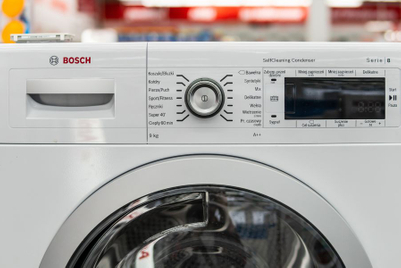
Amnet has promoted Jeremy Lo, previously regional account director for Hong Kong, to a newly-created role as general manager. He was promoted in July, but the agency has just announced the appointment.
Reporting to Anna Chan, regional managing director at the programmatic agency, Lo is also responsible for driving collaboration with sister agencies under Dentsu Aegis Network in Hong Kong to increase programmatic adoption among clients.
Campaign spoke to Lo regarding the state of programmatic buying in Hong Kong, where a lack of technical understanding and a shortage of robust first-party data have slowed adoption.
What effort have you taken to educate advertisers as well as traditional media buyers in Hong Kong on programmatic?
While at an early stage locally, programmatic is a key part of Dentsu Aegis Network’s strategy globally. We have therefore been investing in data, technology, and most importantly, the best people to lead our clients through this exciting time. For our clients, we act as their go-to adtech consultants. Since Amnet is tech agnostic; we are in a unique position to offer our clients the best-in-class and most relevant ad technology (data, brand safety and viewability, targeting, etc.) for their business. With numerous tech vendors in the market, we provide the expertise by ensuring that the vendors and solutions we propose are locally relevant and able to deliver measureable KPIs for clients.
To close the gap in the technical understanding, we hold various programmatic workshops regularly for our clients, and agencies within Dentsu Aegis Network, to build their programmatic knowledge and help them understand the latest opportunities and benefits that automation of media buying brings. In terms of data, we have a flagship data management platform (DMP) called the Amnet Audience Center in place, which we advise clients to integrate into their campaigns for more efficiency and visibility into their target audience. This helps to kickstart the collection of first-party data, which quickly builds up a pool of audiences that we can tap on to optimise the first campaign as well as use for future campaigns. Apart from first-party data, there are also other sources of data such as third-party data through data providers that we can tap on before this pool of audiences is built.
Amnet has stressed a shift toward ‘people-based marketing’. What is it and how it will affect Hong Kong advertisers?
'People-based marketing' is what we define as verifiable audiences or deterministic which is made possible through matching probabilistic data such as cookies with, for example, CRM data. The industry is moving towards such efforts, such as adtech players like LiveRamp which is working together with other players to create cross-device identifiers for more accuracy in determining audience behaviour and preferences. Within Dentsu Aegis Network, we are already working towards such efforts with the acquisition of Merkle in 2016.
All advertisers, not only in Hong Kong, will need to move towards such methods if we want to ensure continued relevancy of our messages that are reaching the consumers. Consumers are increasingly frustrated with brands that reach out to them with irrelevant messages. For example imagine continuously receiving an ad about hotels in a destination that you just returned from.
Why do marketers in HK need to look beyond Google and Facebook for media buys? Where else should they be allocating their budgets?
Hong Kong’s media scene is relatively narrow and is dominated by several major platforms, similar to other global markets: Google and Facebook capture a significant portion of the budget pie. However programmatic advertising is all about targeting audiences on an individual level. It enables marketers to find and target users based on individual characteristics, behaviours, and affinities no matter where they are in the connected (digital) world, all in real-time.
Advertisers have the chance to target or convert users by showing ads at multiple touchpoints throughout a user’s journey. For example, TV inventory is becoming available as programmatic; if a consumer sees an advertiser’s ad on TV, the same advertiser can follow up with a display ad on the consumer’s mobile. Programmatic is providing an almost full-funnel tracking and buying of media.
Additionally, the future is to move traditional direct insertion-order buys to private marketplace (PMP) or programmatic guaranteed (PG) deals. Most of the major international publishers are programmatic ready. Slowly but surely, local publishers are following this trend. TVB for example has recently made their inventory available programmatically. Most in the industry believe we will see a much faster publisher adoption rate moving forward, adding quality, efficiency, and transparency on both ends. This gives marketers unprecedented control of their media investment at real time.
Are the most effective content types in Hong Kong localised native content? If not, what else?
Hong Kong consumers are increasingly referring to localised native content created by influencers (KOLs) when making purchasing decisions, specifically short and long form mobile video units (ads). Successful examples includes TVMost and Viu TV.
When it comes to receptiveness of the audience however, it depends on the content format. Generally we find brands running 10-second mobile video ads have greater appeal and engagement potential with younger audiences, whereas longer form, 30-second video ads resonate better with older (35+) audiences. Still, our learning suggests that this depends on the demographics and KPI goals. Not all video ads must be short form in order to be successful. It’s a matter of constant testing and learning and finding the right media cocktail to engage your target audience.



.jpg&h=334&w=500&q=100&v=20250320&c=1)

.jpg&h=334&w=500&q=100&v=20250320&c=1)
.jpg&h=334&w=500&q=100&v=20250320&c=1)
.jpeg&h=334&w=500&q=100&v=20250320&c=1)

.jpg&h=334&w=500&q=100&v=20250320&c=1)
.jpg&h=334&w=500&q=100&v=20250320&c=1)






.jpg&h=268&w=401&q=100&v=20250320&c=1)
.jpg&h=268&w=401&q=100&v=20250320&c=1)
.jpg&h=268&w=401&q=100&v=20250320&c=1)